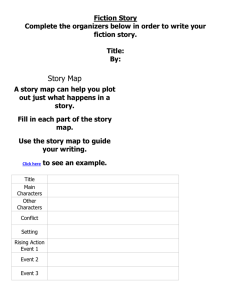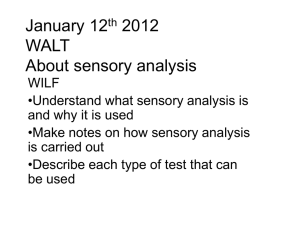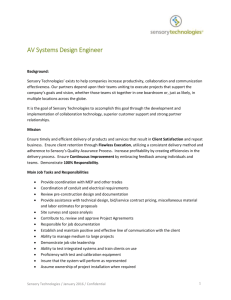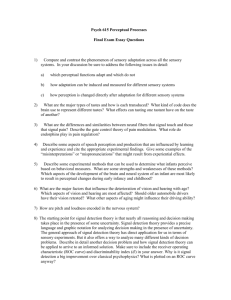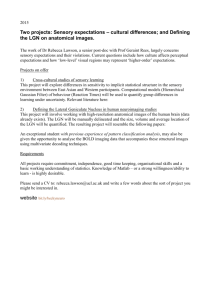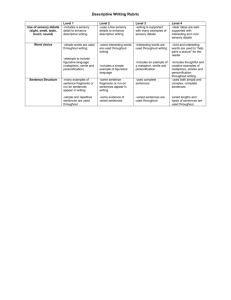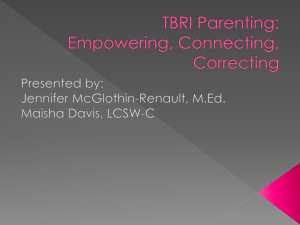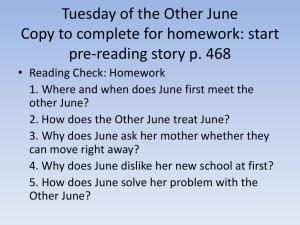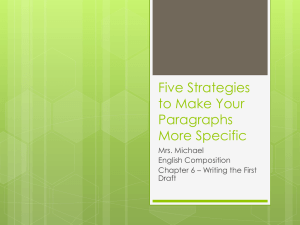Sensory Details
advertisement
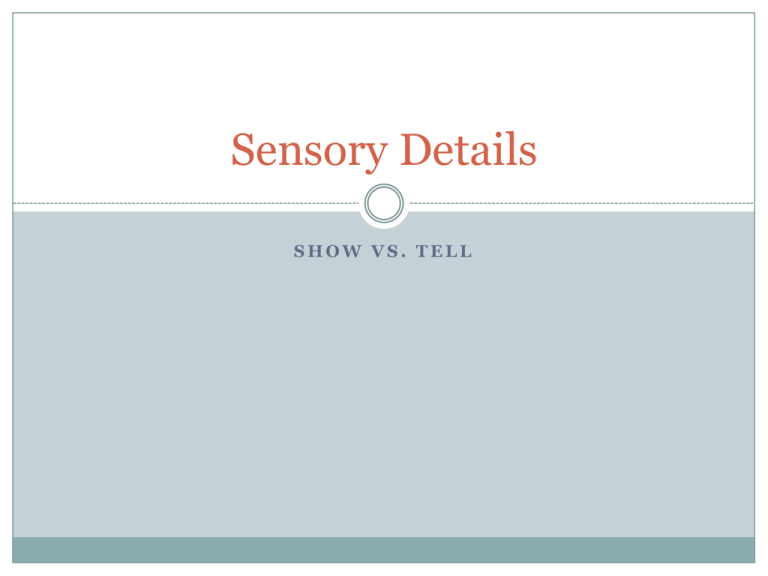
Sensory Details SHOW VS. TELL Sensory Details – What and Why? Sensory details include words that describe sights, sounds, smells, tastes and feelings of the setting, characters and interactions. Sensory details allow the reader to put themselves into your story mentally by forming a picture in his/her mind. Without sensory details, the reader becomes bored and cannot emotionally connect to the story. Example Boring sentence: It was a cold, fall morning at Leo Hayes High School. New Sensory details added: The frigid morning air and dense gray fog did not stop Jane from inhaling the fresh smell of rain from the damp concrete and yelling across the Leo Hayes parking lot, “Good morning Joe!” Notice that the boring sentence tells us what is happening, while the new sentences shows us what is happening. Activity In your small groups, you are going to transform some boring sentences into new, exciting sentences, rich with sensory detail. Prizes will be given for the best sentences! It was a nice day at the beach. The cookies were good. English class is fun!
